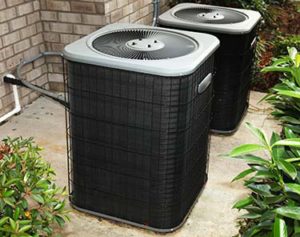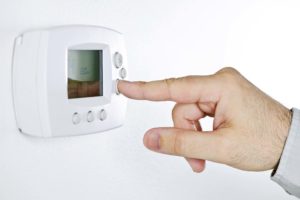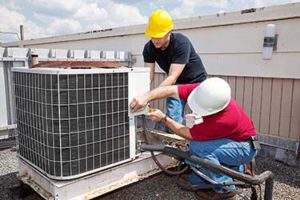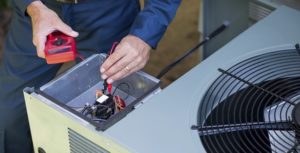
In general, there are four types of central air conditioning:
TO READ MORE GO TO: https://www.consumersearch.com/central-air-conditioners/types-of-air-conditioners

In general, there are four types of central air conditioning:
TO READ MORE GO TO: https://www.consumersearch.com/central-air-conditioners/types-of-air-conditioners

In addition to the refrigerant, an air conditioning system requires a minimum of four components, the compressor, condenser, metering device, and evaporator.
TO READ MORE GO TO: https://www.mobileair.com/refrigeration-cycle

In most occasions, most of us seldom think about our heating and cooling systems; that is, until something goes wrong. To prevent something going wrong during the hot summer months — such as your cooling system breaking down or becoming dysfunctional — the best option is to set up an appointment for an HVAC maintenance check.
TO READ MORE GO TO: http://www.aabsoluteplumbing.com/ac-maintenance-important/

Air conditioning systems today, especially high-efficiency systems, help control what’s known as IAQ or “Indoor Air Quality.” IAQ is a combination of cleanliness of the air (no dust or pollen), humidity, temperature control and odor.
Why is this important?
TO READ MORE GO TO: http://www.ac-heatingconnect.com/homeowners/what-is-indoor-air-quality-and-can-my-ac-system-help/

Below, we outline some things you can do to check its functionality and ensure you have a working thermostat. Before anything, you need to determine which type of device you have and understand how it works.
TO READ MORE GO TO: https://learn.compactappliance.com/thermostat-working-correctly/

There are a couple of warning noises you can be listening for. Be sure to address the issue as soon as you hear any of the following noises coming from your HVAC.
TO READ MORE GO TO: https://learn.compactappliance.com/loud-hvac-noises/

Here are 5 common HVAC odors and what they indicate.
TO READ MORE GO TO: https://learn.compactappliance.com/hvac-odors/

B-T-U
The acronym stands for British Thermal Unit, which is the unit used to measure thermal (heat) energy. Specifically, it is the amount of energy needed to raise 1 pound of water 1°F at sea level.
When used in relation to air conditioning systems or heaters, the measurement is expressed in terms of how many BTUs per hour the product can add or remove from the air.
TO READ MORE GO TO: https://learn.compactappliance.com/air-conditioning-btus/

When an air conditioner runs, it does two jobs. It lowers the temperature of the air, and it removes moisture from the air. To do the second one, the AC has to run for a while.
TO READ MORE GO TO: https://www.energyvanguard.com/blog/55157/Why-an-Oversized-Air-Conditioner-Is-a-Bad-Idea